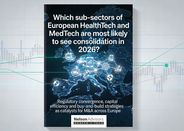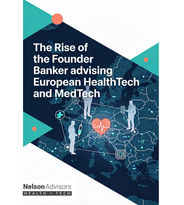Robotic Process Automation: Transformation in the NHS back office
- Stephen Sutcliffe
- Nov 17, 2017
- 3 min read

The use of robots can help transform the way our healthcare system is managed, says Stephen Sutcliffe, director of Finance and Accounting at NHS Shared Business Services.
In his speech at the Health and Care Innovation Expo in Manchester earlier this year, the health secretary Jeremy Hunt outlined the digital standards he expects to see in place for all NHS patients by the end of 2018.
And he is right. In today’s world, where it’s the norm for many of us to be functioning online, both at work and at home, why shouldn’t we have the option to use the same modern technology to access our medical record, book an appointment, or get a repeat prescription online?
But away from the more headline grabbing digital initiatives that will undoubtedly benefit frontline patient care, there is also a – perhaps less glamorous, but no less crucial – transformational journey taking place in the NHS back office.
For those of us concerned with optimising NHS business functions in light of the ongoing pressures facing our hospitals and other healthcare providers, the importance of embracing new technology cannot be overstated.
The recent annual report from the Care Quality Commission (CQC), for instance, found the NHS is operating at ‘full stretch’ with ‘unprecedented pressure on the system’.
It is against this backdrop that the need to introduce the most up-to-date technology to further modernise traditional NHS business processes – and to channel the subsequent staff time and financial savings into other areas – can be seen more clearly than ever.
Whilst automation has already started to replace many paper-based manual processes, helping forward-thinking NHS organisations save money and make better use of their workforce, the introduction of Robotic Process Automation (RPA) promises even greater opportunities for wide-scale efficiencies.

RPA is the latest in processing technology, utilising the most recent desktop and device automation technologies and applying innovative RPA solutions to carry out repetitive data entry and processing tasks.
Any process that has traditionally relied on labour-intensive manual interventions, will begin to see greater consistency, better controls and improved quality. Because guess what? Robots don’t make mistakes, robots can work around the clock and robots do the same thing over and over again without getting bored. So employing robots to carry out the simple and mundane frees up humans to do what you want people to be doing – thinking, questioning and adding value.
It is inevitable, of course, that with any new technology comes a certain level of resistance. But RPA should not be feared. Indeed, in many aspects of everyday life it’s already working successfully all around us. And with the efficiency improvements that hospitals and other parts of the NHS need to meet, this technology will become increasingly important to back office processing.
At NHS SBS, for example, we provide finance and accounting services to almost 70 NHS provider trusts and all of the country’s NHS commissioning organisations. On this scale, the benefits of introducing RPA across some of our 500 plus prospective financial processes are obvious.
Transformation is a term that is used a lot in relation to healthcare. But, in this instance, it perfectly describes how RPA – which by definition will become ever more sophisticated over time – will ensure that resources in the NHS back office are better deployed for years to come.
Stephen Sutcliffe
Director of finance and accounting at NHS Shared Business Services
https://www.sbs.nhs.uk

NHS Shared Business Services is a unique joint venture between the Department of Health and Sopra Steria.
We're proud to be the only company which is part of the NHS family, with over 30% of the market using one or more of our products. Our mission is to deliver £1 billion savings back to the NHS by 2020.
We've already delivered audited savings of over £400 million to our NHS clients.
As an industry innovator, we use data, intelligence and technology to revolutionise NHS back office functions and support services to maximise performance.


















































Comments